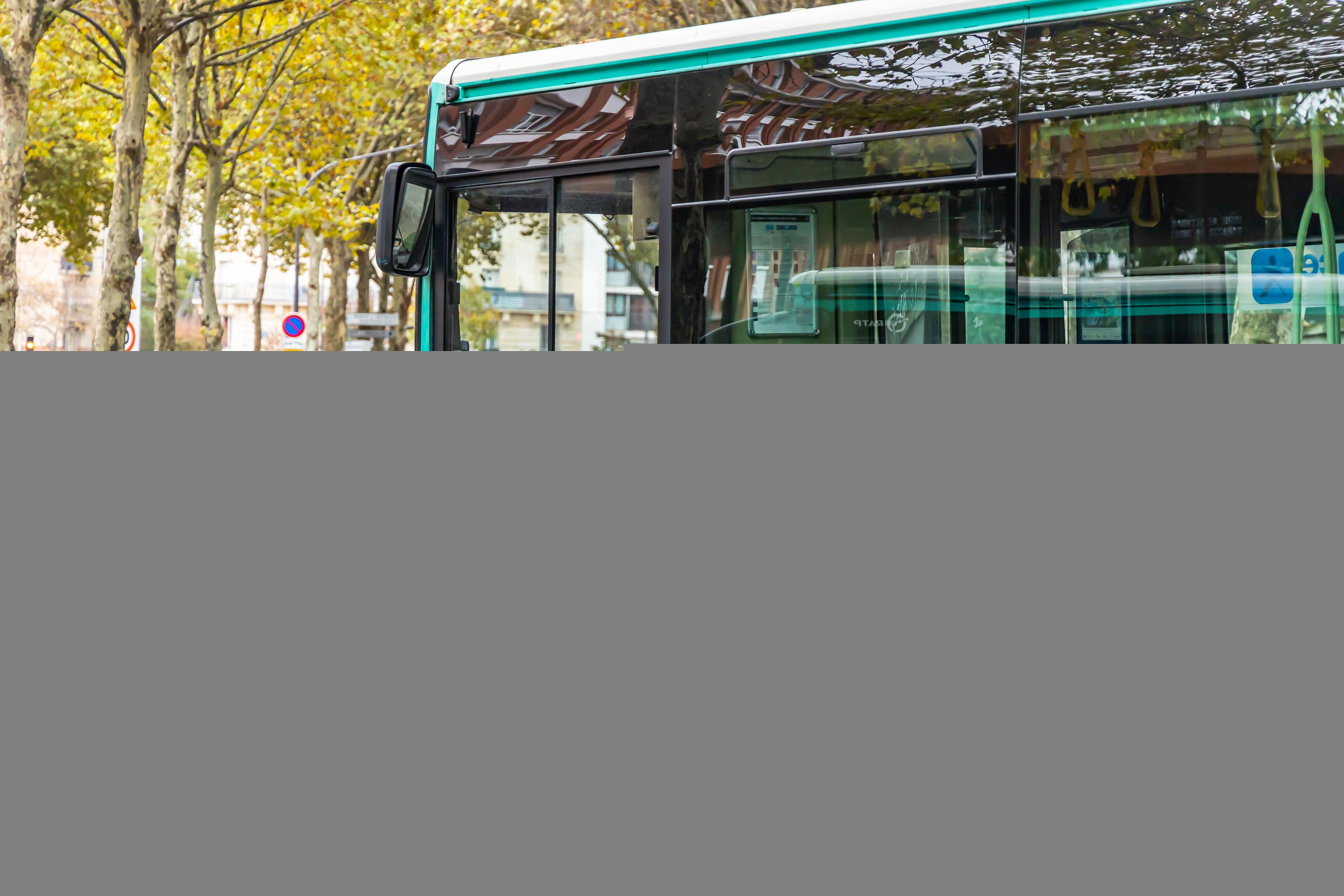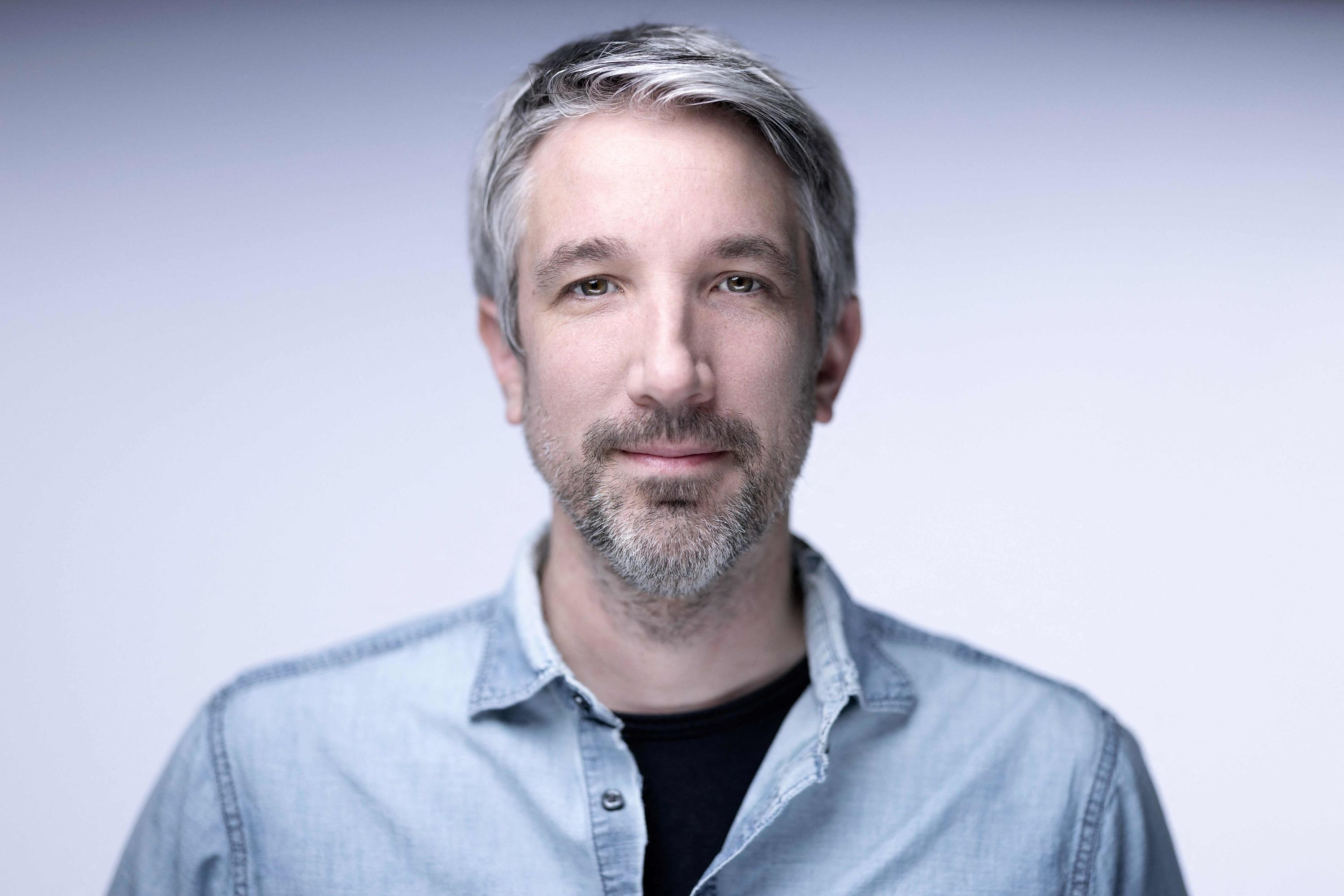According to the Committee on Eastern European Economic Relations, the sanctions against Russia are working. They unfolded their effect in the medium term, said managing director Michael Harms in the ARD "Morgenmagazin". “Russia is suffering more from the sanctions than the German economy.” The majority of them support the sanctions.
There is a “very strong” concern in Germany that branches of industry could collapse, Harms said. Many companies in the chemical industry have reported to him that they are no longer making any money in Germany because of the high prices.
The great advantage of the German economy, however, is that it is diversified worldwide and can cushion the impact. The right answer is to phase out fossil fuels. "The faster we can do that, the better we will be able to preserve the basic industries."
The main tasks of the Eastern Committee include establishing and maintaining economic relations with Eastern Europe. Harms does not see a return to normal economic relations with Russia in the foreseeable future. A basic condition for this would be a fair and sustainable peace agreement in Ukraine.
Poland's defense minister wants to deploy additional Patriot air defense systems on the border with Ukraine. That's what Mariusz Blaszczak tweeted. Germany had previously offered to make the missile defense system available to Poland.
Roughly nine months after the start of the Russian invasion of Ukraine, the Ukrainian President Volodymyr Zelenskyj recognized his people's will to resist. “We are ready to give the last. Ready to fight to the end," Zelenskyy said in a video message on Monday on the occasion of the so-called "Day of Dignity and Freedom." Ukraine has paid a very high price for freedom and will continue to pay it, said the head of state, referring to the thousands of war victims.
Everyone has seen what the Ukrainians are capable of and what defenders they have, said Zelenskyy. "How we can withstand one of the largest armies in the world and become one of the best armies in the world." Hard-nosed fighters would have joined musicians, actors, Olympic champions, IT specialists, scientists and business people. Hundreds of thousands of Ukrainians did not board planes but stood in line at draft offices to defend Ukraine.
Zelenskyy also praised the courage of civilians who stopped enemy tanks and armored personnel carriers "with their bare hands" and went to rallies against the Russian occupiers despite gunfire and flashbangs. Doctors operated despite bomb attacks, fields were cultivated "under bombs and bullets".
With the "Day of Dignity and Freedom" Ukraine commemorates the beginning of the bloody Euromaidan protests in 2013/14. The trigger at the time was the decision by pro-Russian President Viktor Yanukovych not to sign an association agreement with the EU.
Crude steel production in Germany was also well below the previous year's level in October. A total of around 3.1 million tons of crude steel were produced in Germany last month, 14.4 percent less than in October 2021, the Steel Industry Association reported on Monday in Berlin. In the year to date there has been a decline in total crude steel production of almost 7 percent.
The Russian attack on Ukraine, the turmoil on the energy markets, the turnaround in interest rates, supply chain problems and a sluggish global economy are therefore having a negative impact on the development of important steel processing sectors. This also leaves skid marks in the steel industry.
Thuringia's Prime Minister Bodo Ramelow (left) is in favor of German arms deliveries to Ukraine and is thus opposed to the decisions of his Left Party. "I used to be an opponent of arms deliveries - today I would like to add that anyone who is attacked has the right to defend themselves," Ramelow told the Süddeutsche Zeitung on Monday. The party leadership of the left fundamentally rejects arms deliveries to Ukraine, citing, among other things, the danger of an escalation of the war.
In the interview, Ramelow said there was a time, even after the Russian occupation of Crimea in 2014, when he still relied on certain dialogue formats. He also often criticized the sanctions.
"My argument has always been: we need a negotiation process on how we can get along with Russia," said Ramelow. "But that presupposes that there is still hope for democratization, stabilization and civilization."
After retreating across the Dnipro River in southern Ukraine, the Russian forces are concentrating on defending the city of Svatove in the east of the country, according to British estimates. There the Russian troops are now most vulnerable, said the Ministry of Defense in London, citing intelligence findings. "As a major population center in the Luhansk region, the Russian leadership will most likely see maintaining control of Svatove as a political priority," it said.
There have been heavy artillery battles in the area in recent weeks. As in other parts of the front, Russia is expanding its defensive positions there, although these are primarily manned by poorly trained reservists.
"However, commanders are likely struggling with the military reality of maintaining a credible defense while attempting to resource offensive operations further south in Donetsk," the ministry said. "Both the defensive and offensive capabilities of Russian troops continue to be hampered by a serious shortage of ammunition and qualified personnel."
Since the war began in February, Russia has reportedly fired almost 4,700 rockets at Ukraine, leaving large parts of the country in ruins. "Hundreds of our cities have practically burned down, thousands of people have been killed, hundreds of thousands have been deported to Russia," President Volodymyr Zelenskyy said on Sunday. Both the head of state and the general staff in Kyiv also reported that heavy fighting continued, especially in the Donbass region in the east of the country.
According to Zelenskyy, fierce fighting in the Donbass continues. The area around Donetsk in particular is heavily contested, he said in his daily video speech. "Unfortunately, although there are fewer attacks due to the worsening weather, the number of Russian artillery raids remains high."
The General Staff in Kyiv had previously reported continued clashes on various front sections in the east of the country. At Luhansk, several Russian advances were fended off, it said. The information could not be independently verified.
Meanwhile, the Ministry of Defense in Kyiv has contradicted speculation by Western media and military officials that there could be a pause in fighting on the fronts in winter. "Anyone who talks about a possible 'pause in hostilities' because of the sub-zero winter temperatures has probably never sunbathed on the southern coast of Crimea in January," the agency said on Twitter.
Germany wants to make the Patriot missile defense system available to Poland. "We offered Poland support in securing the airspace - with our Eurofighters and with Patriot air defense systems," Defense Minister Christine Lambrecht (SPD) told the Rheinische Post. As a consequence of the incident in Poland last week, the air defense in the NATO alliance must be improved. "This is particularly true with regard to NATO partners such as Poland, Slovakia and the Baltic States, which directly border Russia and Ukraine."
A few days ago, a stray rocket crashed in Poland, killing two people. According to NATO chief Jens Stoltenberg, the missile was apparently fired by the Ukrainian air defense system and not by Russia. Ground-based anti-aircraft systems like the Patriot are designed to intercept incoming missiles.
The head of the International Atomic Energy Agency (IAEA), Rafael Grossi, has described the explosions at the Russian-controlled Zaporizhia nuclear power plant in Ukraine as extremely worrying. “Explosions occurred at the site of this large nuclear power plant, which is totally unacceptable. Whoever is behind this must stop immediately. As I have said many times before, they are playing with fire,” explained Grossi.
IAEA staff would examine the safety of the nuclear power plant on Monday. The largest nuclear power plant in Europe, occupied by Russian troops, was shaken by dozens of grenade hits on Saturday and Sunday. In the months before, the nuclear power plant had come under fire several times. Ukraine and Russia blame each other for this.
The Russian operator Rosenergoatom announced that there will be restrictions on the IAEA inspectors. "If they want to inspect a facility that has nothing to do with nuclear safety, they will be denied access," Renat Karchaa, an adviser to the Rosenergoatom boss, told Tass news agency. The repeated shelling of the plant in southern Ukraine raised fears of another nuclear accident like that in Chernobyl around 500 kilometers away in 1986.
"Kick-off Politics" is WELT's daily news podcast. The most important topic analyzed by WELT editors and the dates of the day. Subscribe to the podcast on Spotify, Apple Podcasts, Amazon Music, among others, or directly via RSS feed.

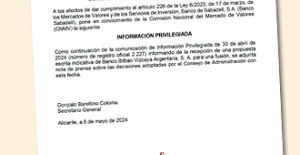 Sabadell rejects the merger with BBVA and will fight to remain alone
Sabadell rejects the merger with BBVA and will fight to remain alone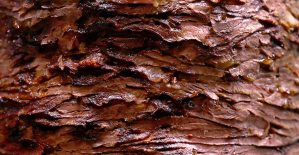 In Germany, the far left wants to cap the price of “doner kebabs”
In Germany, the far left wants to cap the price of “doner kebabs” Israel-Hamas war: Gaza between hope of truce and fear of Israeli offensive in the South
Israel-Hamas war: Gaza between hope of truce and fear of Israeli offensive in the South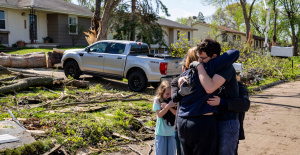 “Mom, Dad, please don’t die”: in the United States, a nine-year-old child saves the lives of his parents injured in a tornado
“Mom, Dad, please don’t die”: in the United States, a nine-year-old child saves the lives of his parents injured in a tornado A baby whose mother smoked during pregnancy will age more quickly
A baby whose mother smoked during pregnancy will age more quickly The euro zone economy grows in April at its best pace in almost a year but inflationary pressure increases
The euro zone economy grows in April at its best pace in almost a year but inflationary pressure increases Children born thanks to PMA do not have more cancers than others
Children born thanks to PMA do not have more cancers than others Breast cancer: less than one in two French women follow screening recommendations
Breast cancer: less than one in two French women follow screening recommendations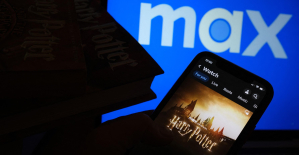 “House of the Dragon”, “Succession”… Max, the new streaming platform from HBO and Discovery, launched in France on June 11
“House of the Dragon”, “Succession”… Max, the new streaming platform from HBO and Discovery, launched in France on June 11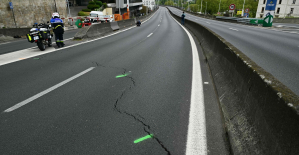 The A13 motorway will finally reopen this Friday, in one direction only
The A13 motorway will finally reopen this Friday, in one direction only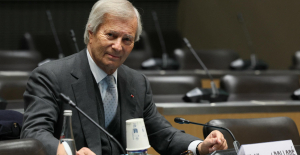 TNT commission of inquiry: tensions between LFI deputies and Macronists before the vote on the report
TNT commission of inquiry: tensions between LFI deputies and Macronists before the vote on the report Apple unveils a new, more efficient iPad range
Apple unveils a new, more efficient iPad range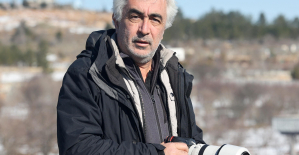 The Gaza War invites itself to the 2024 Pulitzer Prizes
The Gaza War invites itself to the 2024 Pulitzer Prizes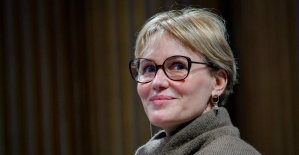 Judith Godrèche presents a short film on sexual violence in Cannes
Judith Godrèche presents a short film on sexual violence in Cannes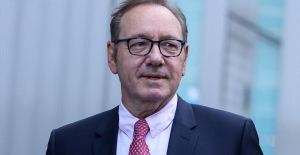 Kevin Spacey: new trial in sight in London for the American actor, for sexual assault
Kevin Spacey: new trial in sight in London for the American actor, for sexual assault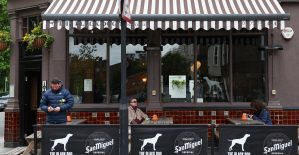 Taylor Swift fans make London pub Black Dog their new place of pilgrimage
Taylor Swift fans make London pub Black Dog their new place of pilgrimage Omoda 7, another Chinese car that could be manufactured in Spain
Omoda 7, another Chinese car that could be manufactured in Spain BYD chooses CA Auto Bank as financial partner in Spain
BYD chooses CA Auto Bank as financial partner in Spain Tesla and Baidu sign key agreement to boost development of autonomous driving
Tesla and Baidu sign key agreement to boost development of autonomous driving Skoda Kodiaq 2024: a 'beast' plug-in hybrid SUV
Skoda Kodiaq 2024: a 'beast' plug-in hybrid SUV The home mortgage firm rises 3.8% in February and the average interest moderates to 3.33%
The home mortgage firm rises 3.8% in February and the average interest moderates to 3.33% This is how housing prices have changed in Spain in the last decade
This is how housing prices have changed in Spain in the last decade The home mortgage firm drops 10% in January and interest soars to 3.46%
The home mortgage firm drops 10% in January and interest soars to 3.46% The jewel of the Rocío de Nagüeles urbanization: a dream villa in Marbella
The jewel of the Rocío de Nagüeles urbanization: a dream villa in Marbella Institutions: senators want to restore the accumulation of mandates and put an end to the automatic presence of ex-presidents on the Constitutional Council
Institutions: senators want to restore the accumulation of mandates and put an end to the automatic presence of ex-presidents on the Constitutional Council Europeans: David Lisnard expresses his “essential and vital” support for François-Xavier Bellamy
Europeans: David Lisnard expresses his “essential and vital” support for François-Xavier Bellamy Facing Jordan Bardella, the popularity match turns to Gabriel Attal’s advantage
Facing Jordan Bardella, the popularity match turns to Gabriel Attal’s advantage Europeans: a senior official on the National Rally list
Europeans: a senior official on the National Rally list These French cities that will boycott the World Cup in Qatar
These French cities that will boycott the World Cup in Qatar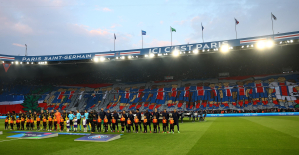 PSG-Dortmund: a gigantic tifo on three stands to welcome the players
PSG-Dortmund: a gigantic tifo on three stands to welcome the players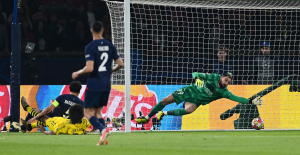 PSG-Dortmund: in video, Donnarumma’s decisive save which saves the Parisians
PSG-Dortmund: in video, Donnarumma’s decisive save which saves the Parisians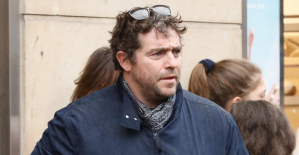 Pro D2: Biarritz goes before the regulatory authority and reveals partners
Pro D2: Biarritz goes before the regulatory authority and reveals partners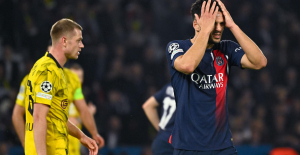 Champions League: without madness then cursed, PSG lets its dreams of the final fly away
Champions League: without madness then cursed, PSG lets its dreams of the final fly away





